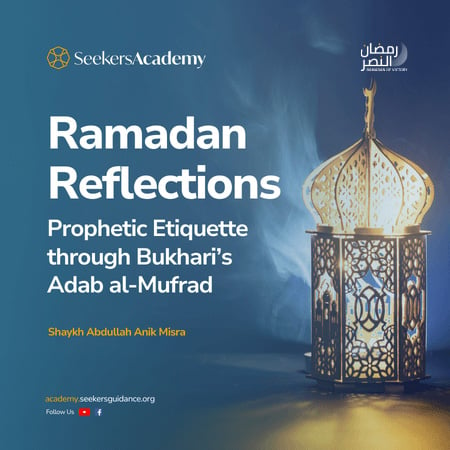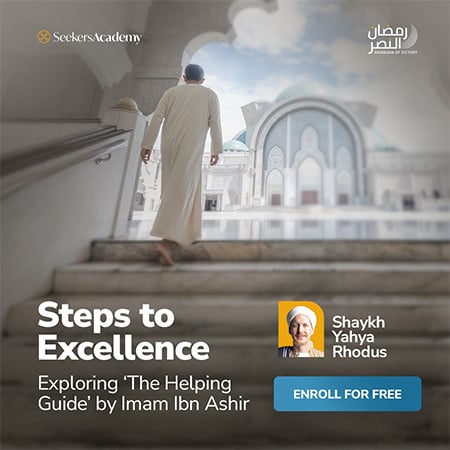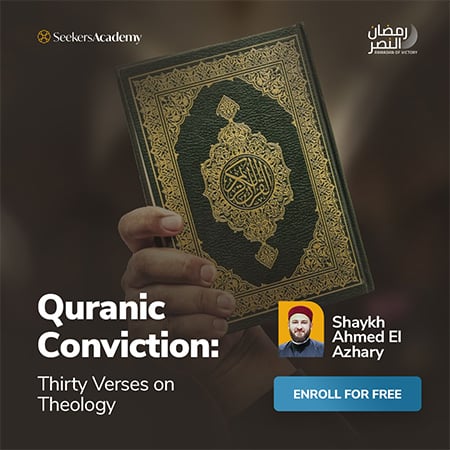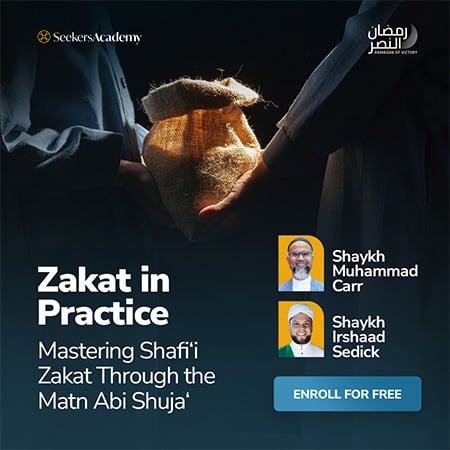
We often focus on the worship and duties of Ramadan, but do we draw on the wisdom of the prophetic etiquettes also to help improve ourselves and be better to Allah and those around us? Through this course, you will learn how a Muslim should be with himself, his spouse, family, neighbors, fellow Muslims, society at large, and finally, how a Muslim should be with Allah throughout the day in His remembrance.
Shaykh Misra will explain Hadiths from "Al-Adab al-Mufrad," one of Imam Bukhari’s smaller but valuable hadith compilations on etiquettes and virtues.
- Teacher: Shaykh Abdullah Anik Misra
Al-Adab al-Mufrad (The Stand-Alone Book on Prophetic Etiquettes) covers many different chapters of etiquettes, from kindness to parents, to good relations with neighbors and others, and more. We utilize the very useful modern abridgment of the work called Adab al-Salikin by Shaykh Muhammad Muwaffaq al-Murabi’ of Syria, who removed the longer chains of narration and more to make the reading of the book more accessible for the seeker of knowledge.
This text focuses on various areas where Muslims can be more mindful of their interactions and behavior, such as with their parents, children, relatives, neighbors, orphans, vulnerable people, and other community members. The text brings to light different character traits and provides many points of knowledge to help improve ourselves as God-conscious believers.
This text is essential because even a learned and practicing Muslim does not seem complete and balanced in his religion without etiquette. From the compiler of the Sahih, this is a clear indication that outwardly following hadiths also entails following the character and manners of the Prophet Muhammad (Allah bless him and give him peace).
- General audiences
- Muslims interested in Hadith sciences, character development, and prophetic example
- Know some of the prophetic etiquettes through the hadith
- Use the wisdom of these etiquettes in Ramadan to apply to daily life
- Uplift and improve our outlook, character and behavior
- Balance the outward and inward aspects of Ramadan
- See the acts of worship in their personal and societal contexts
- See how the Companions also saw etiquettes and their place in Islam.


